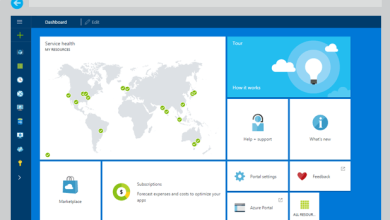Airbnb Taxes In South Africa: A Comprehensive Guide For Hosts

Ever wondered how to navigate the complex maze of Airbnb taxes in South Africa without losing your cool? You’re not alone! Many hosts find themselves scratching their heads over tax implications, deductions, and compliance requirements. But fear not, because we’re here to simplify the process and make it as stress-free as possible.
What Qualifies as Airbnb Rental Income for Tax Purposes?
Any income earned from renting out your property on Airbnb constitutes taxable income in South Africa. This includes not only the rental fees paid by guests but also any additional charges, such as cleaning fees or security deposits. It’s crucial to keep meticulous records of all your Airbnb earnings to ensure accurate tax reporting.
Understanding Your Tax Obligations as an Airbnb Host
How is Airbnb taxed in South Africa?
Airbnb income in South Africa is generally considered taxable income. This means that you need to declare your earnings from renting out your property on Airbnb on your tax return.
Here’s a breakdown of the key tax considerations for Airbnb hosts in South Africa:
- Income Tax: All income earned from Airbnb rentals is subject to income tax.
- Value-Added Tax (VAT): If your annual Airbnb income exceeds R1 million, you’re required to register for VAT and charge it to your guests.
- Deductions: You can deduct certain expenses related to your Airbnb property, such as utilities, advertising costs, and property taxes, from your taxable income.
Maximising Deductions to Reduce Your Tax Burden
As an Airbnb host in South Africa, understanding the available deductions can significantly reduce your tax burden. By claiming eligible expenses, you can offset your taxable income and potentially save on your tax payments.
Here’s a breakdown of the most common deductions for South African Airbnb hosts:
Direct Property Expenses
- Levies and rates: These are local government charges imposed on your property.
- Property taxes: The annual tax assessed on your property by the local municipality.
- Homeowners’ insurance: The cost of insuring your property against damage or loss.
- Bond interest: If you have a mortgage on your property, the interest paid on the loan.
- Maintenance and repairs: Expenses incurred to keep your property in good condition.
Operating Expenses
- Utilities: Costs associated with running your property, such as electricity, water, and gas.
- Advertising and marketing: Expenses for promoting your Airbnb listing, including online advertising and marketing materials.
- Cleaning and laundry expenses: Costs for cleaning and laundry services provided to guests.
- Agent’s fees: If you use a property management agent, their fees are deductible.
- Depreciation: Over time, your property may depreciate in value. You can claim a depreciation allowance to offset this decline.
Expenses Directly Related to Rental Income
- Travel expenses: If you travel to your Airbnb property for maintenance, repairs, or guest management, you can claim travel expenses.
- Professional fees: Costs for professional services related to your Airbnb business, such as accounting or legal advice.
Important Considerations:
- Proportional deductions: If you only rent out a portion of your property, you can only claim a proportional amount of the deductions. For example, if you rent out one bedroom in a three-bedroom house, you can only deduct one-third of the utilities and other expenses.
- Record-keeping: To substantiate your deductions, it’s essential to keep detailed records of all expenses. This includes receipts, invoices, and bank statements.
Also read: Tax breaks for guesthouses and hotels
Partial Property Rentals and Proportionate Deductions
If you’re renting out only a portion of your property on Airbnb, such as a single room or a guest house, it’s important to understand how this affects your tax obligations. When you rent out a part of your property, you can only claim deductions that are directly related to that portion.
Here’s a breakdown of how proportionate deductions work:
- Determine the rental income: Calculate the total rental income you earn from the portion of the property you’re renting out.
- Calculate the total expenses: Determine the total expenses associated with the entire property, including utilities, maintenance, and other relevant costs.
- Calculate the proportion: Divide the rental income from the rented portion by the total rental income from the entire property. This will give you the proportion of expenses that can be deducted.
- Apply the proportion: Multiply the total expenses by the proportion calculated in step 3. This will determine the amount of expenses you can deduct for the rented portion.
Example:
If you have a three-bedroom house and rent out one bedroom for R3,000 per month, while the other two bedrooms are occupied by family members, your total rental income is R3,000. If the total expenses for the entire house are R5,000 per month, you can deduct R1,000 (R3,000 / R5,000 * R5,000) for the rented portion.
Additional Considerations:
- Shared expenses: If you share expenses with the family members occupying the other rooms, such as utilities or internet, you may need to allocate a portion of these expenses to the rented portion.
- Record-keeping: Maintain detailed records of your rental income and expenses to accurately calculate proportionate deductions.
Keeping Accurate Records: The Cornerstone of Tax Compliance
Maintaining detailed records is crucial for ensuring accurate tax reporting and avoiding penalties. By meticulously tracking your income and expenses, you can provide the South African Revenue Service (SARS) with the necessary documentation to substantiate your tax claims.
Here’s a checklist of essential records for Airbnb hosts:
- Rental income records:
- Reservation details, including guest names, check-in/check-out dates, and rental periods.
- Payment receipts or bank statements showing the amounts received.
- Any additional fees collected, such as cleaning fees or security deposits.
- Expense records:
- Receipts or invoices for all deductible expenses, including utilities, property taxes, maintenance, and advertising.
- Bank statements showing payments made for expenses.
- Property ownership documents:
- Proof of ownership, such as a title deed or lease agreement.
- Property tax assessment notices.
- Rental agreements:
- Copies of rental agreements for each guest.
- Calendar or diary:
- A record of your activities related to your Airbnb property, such as maintenance, guest interactions, or property inspections.
Tips for effective record-keeping:
- Use accounting software: Consider using accounting software specifically designed for rental properties to streamline the record-keeping process.
- Scan and digitise documents: Store digital copies of your documents for easy access and backup.
- Organise your records: Create a filing system to store your documents in a logical and easily accessible manner.
- Keep records for at least five years: The South African Revenue Service generally requires you to keep records for five years after the end of the tax year.
By maintaining accurate records, you can:
- Ensure accurate tax reporting: Provide SARS with the necessary documentation to substantiate your tax claims.
- Avoid penalties: Minimise the risk of penalties and interest charges if you’re audited.
- Support your deductions: Provide evidence to support your claims for deductions.
- Track your income and expenses: Gain insights into the profitability of your Airbnb business.
Remember, thorough record-keeping is not only a legal requirement but also a valuable tool for managing your Airbnb business effectively.
Consequences of Non-Compliance
Failing to declare your Airbnb income or neglecting to register for VAT when applicable can result in hefty penalties and even criminal prosecution. The South African Revenue Service (SARS) has the authority to audit your tax returns and impose penalties for non-compliance.
Additional Considerations for South African Airbnb Hosts
- Tax implications for foreign residents: If you’re a foreign resident renting out a property on Airbnb in South Africa, you may be subject to different tax rules. It’s advisable to consult with a tax professional specialising in foreign income.
- Staying informed about tax law changes: Tax regulations can evolve over time. Staying updated on the latest tax laws pertaining to Airbnb rentals ensures you remain compliant.
Navigating Airbnb Taxes with Confidence
Understanding your tax obligations and implementing effective record-keeping practices are essential for Airbnb hosts in South Africa. By doing so, you can ensure compliance with tax laws and maximise your deductions.
Key points to remember:
- Airbnb income is generally taxable: All income earned from renting out your property on Airbnb is subject to income tax.
- VAT registration: If your annual Airbnb income exceeds R1 million, you’re required to register for Value-Added Tax (VAT).
- Deductions: You can deduct certain expenses related to your Airbnb property, such as utilities, advertising, and property taxes.
- Record-keeping: Maintaining accurate records of your income and expenses is crucial for tax compliance.
Consulting with a qualified tax professional is highly recommended to:
- Get personalised advice: Ensure that you’re adhering to the latest tax laws and regulations.
- Maximise deductions: Identify all eligible deductions to reduce your tax liability.
- Avoid penalties: Minimise the risk of penalties and interest charges for non-compliance.
By taking these steps, you can confidently navigate the tax landscape as an Airbnb host in South Africa and maximise your financial returns.
Conclusion: Navigating Airbnb Taxes in South Africa
Understanding and managing Airbnb taxes in South Africa is crucial for hosts to ensure compliance and maximise their rental income. By staying informed about income tax obligations, VAT registration requirements, and available deductions, you can navigate the complex tax landscape with confidence. Remember these key points:
1. All Airbnb income is generally taxable in South Africa.
2. VAT registration is required if your annual Airbnb income exceeds R1 million.
3. Meticulous record-keeping is essential for accurate tax reporting and maximizing deductions.
4. Proportionate deductions apply when renting out only a portion of your property.
5. Non-compliance can result in severe penalties and legal consequences.
While this guide provides a comprehensive overview of Airbnb taxes in South Africa, tax laws can be complex and subject to change. To ensure you’re making the most of your Airbnb business while staying compliant with all tax regulations, it’s advisable to seek professional assistance.
Need Expert Guidance?
Don’t navigate the complexities of Airbnb taxes alone. ThriveCFO specialises in helping Airbnb hosts optimise their tax strategies and ensure full compliance with South African tax laws. Our team of experts can provide personalised advice tailored to your unique situation.
Contact ThriveCFO today for a consultation and take the stress out of managing your Airbnb taxes. Let us help you thrive as an Airbnb host while staying on the right side of the law.




